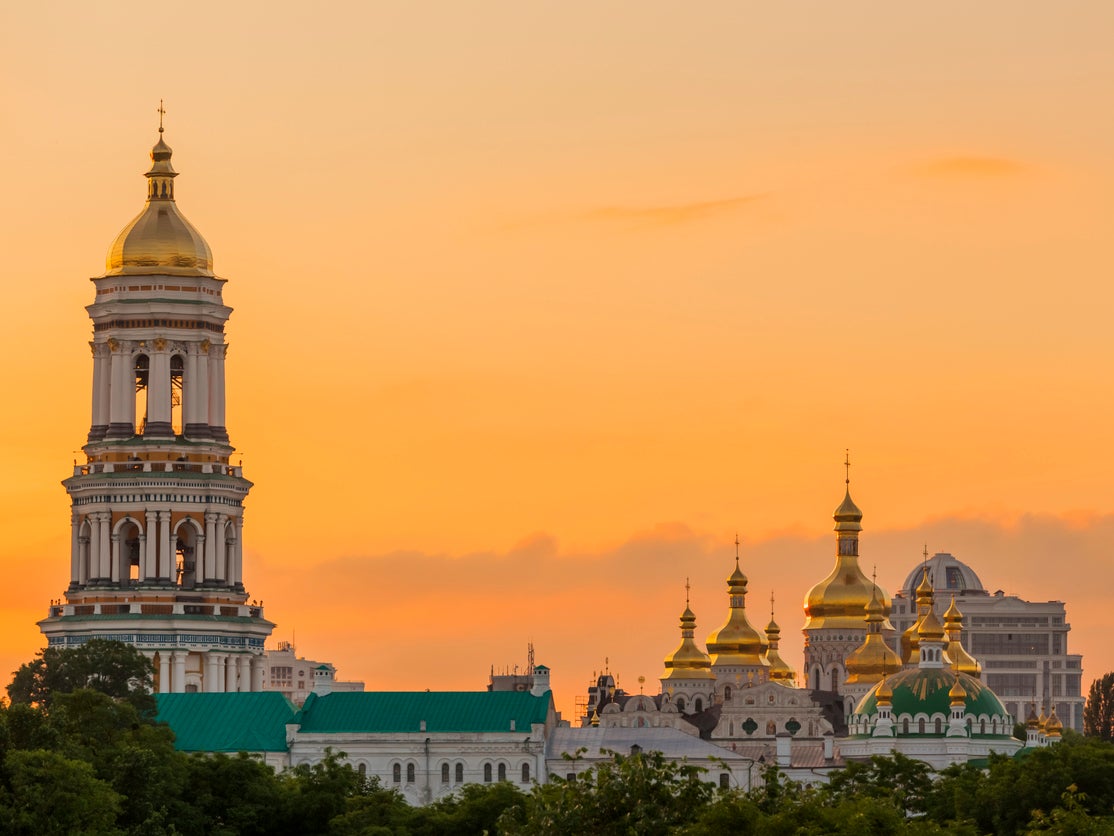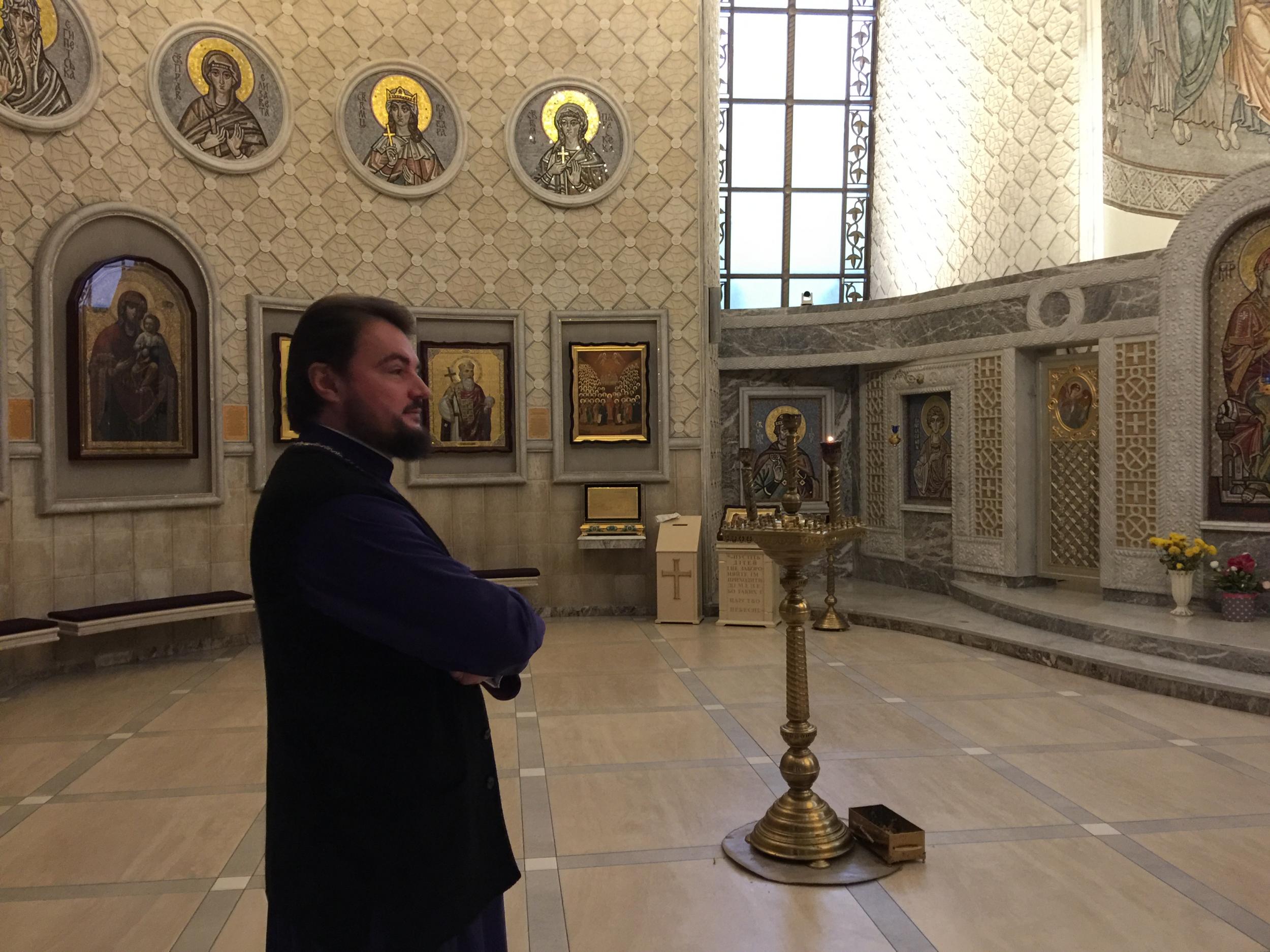Russian-backed Orthodox Church faces pressure from Kiev and splits within
President Petro Poroshenko says the Russian Orthodox Church has become a willing extension of Kremlin power

Your support helps us to tell the story
From reproductive rights to climate change to Big Tech, The Independent is on the ground when the story is developing. Whether it's investigating the financials of Elon Musk's pro-Trump PAC or producing our latest documentary, 'The A Word', which shines a light on the American women fighting for reproductive rights, we know how important it is to parse out the facts from the messaging.
At such a critical moment in US history, we need reporters on the ground. Your donation allows us to keep sending journalists to speak to both sides of the story.
The Independent is trusted by Americans across the entire political spectrum. And unlike many other quality news outlets, we choose not to lock Americans out of our reporting and analysis with paywalls. We believe quality journalism should be available to everyone, paid for by those who can afford it.
Your support makes all the difference.Up on the newly whitened hills of Kiev’s Pechersk Lavra Monastery, life goes back a century or nine. Bearded, black-frocked men scurry across the grounds, gliding between the dozens of temples and administrative buildings. A skittish visitor stops one of the monks in his tracks, and rolls up his sleeve to reveal an arm covered in crusty lesions. He is shepherded to the monastery’s medical centre.
The Pechersk monastery gets its name from the peshchery, or the cave temples hollowed into the hills below. These contain scriptures, icons, and the relics of over a hundred saints, and are considered to be the spiritual centrepiece of eastern Orthodoxy. They survived Nazi occupation and various periods of Soviet persecution, including a time when the holy underground was turned into a museum of atheism.
But representatives of the monastery, now notionally the headquarters of the Moscow-backed branch of Ukraine’s Orthodox Church, say they are facing the biggest challenge in their history.
Two developments – the momentous decision of Constantinople last month to grant autocephaly (independence) to the Ukrainian Orthodox Church, and the subsequent resolution of the Russian Orthodox Church to break with Constantinople – have made the monastery a religious battleground that mirrors the secular tensions between Russia and Ukraine.
In Kiev, the sides are barely keeping the peace.
On Thursday morning, a church that had been transferred to the Constantinople patriarch was reportedly attacked with Molotov cocktails. They didn’t explode, but Ukrainian authorities blamed Moscow. The Russian-backed wing of the Orthodox Church meanwhile says Kiev is targetting them in a campaign of “political persecution,” and is about to embark on a smash-and-grab raid of church property.
“Not even during Soviet times has there been so much political pressure on the church,” says Archbishop Kliment, a senior member of the Russian-backed church in Ukraine. “They are employing unprecedented, asset-grabbing schemes against us. They are using exactly the same methods as Khrushchev and Brezhnev, only those men didn’t even pretend to be religious.”
Autocephaly for the Ukrainian Church is a central tenet of Petro Poroshenko’s re-election campaign, which is starting in earnest ahead of next March’s vote. All across the country, billboards emphasise the thrust of his populist appeal: “Army. Language. Faith.”
But presidential advisor Rostislav Pavlenko, the man charged with implementing the policy, says preparations began much earlier, in 2014, and “almost as soon as the war in the east began”. Constantinople came around to Kiev’s position late last year, he tells The Independent – ”swayed by a combination of Ukrainian clarity, and Russian condescendence, which extends to the religious sphere as well”.
The Ukrainian president has been unapologetic about his appeal to Patriarch Bartholomew of Constantinople, the “first among equals” of Eastern Orthodox clerics. In a speech last month, Poroshenko said the Russian Orthodox Church had become a willing extension of Kremlin power. Its members, moreover, needed to choose “between the Kremlin star and the Orthodox cross”.
In early November, Poroshenko turned up the rhetoric further: “My dear [friends,] you’ve got nothing to do here. Your church has nothing to do here. Your army has nothing to do here. Your arms have nothing to do here. Go home – to Russia.”
According to Kliment, that language insulted churchgoers.
“Our parishioners are not Russian, but Ukrainian citizens and they form the majority,” he tells The Independent.
The Russian-backed church certainly boasts the most congregations in Ukraine. It has approximately 12,000 temples open across Ukraine. Its nearest rival, the Ukrainian Orthodox Church of the Kiev Patriarchate, which until last month was considered schismatic, has about half the number of congregations.
Right up until the Maidan revolution, the Moscow Patriarchate also boasted the largest number of individual followers.
But the bloody turn on the Maidan, the ongoing war in the east and other tensions may have also changed Ukraine’s religious profile. More recent statistics suggest religious Ukrainians are turning away from Moscow. According to one recent report, which is disputed in some quarters, a majority of active churchgoers now, on the contrary, identify with the Kiev Patriarchate.
With their monopoly on official Orthodoxy removed, there are also signs of a deepening split within the Russian-backed church itself.
Several parishes have already indicated they intend to switch from the Moscow Patriarchate to the new unified church. The Kiev government is said to have persuaded at least 12 senior clerics (of 90) to back their position.
The Metropolitan Oleksandr (Drabinko) of Pereyaslav-Khmelnitsky is perhaps the most outspoken cleric in the pro-autocephaly faction of the Moscow Patriarchate. Speaking with The Independent in his office at the Holy Transfiguration Cathedral, located just across from the racecourse in Kiev’s barren southwestern suburbs, he says independence is a logical, “patriotic” course. The head of the Russian Orthodox Church had barely concealed his political agenda, he said – and this was where the “real political pressure on the church” was.
“How can I adhere to a man who calls my state a junta and openly applauds Putin after the Crimean annexation?” he asks rhetorically.
Drabinko says there are “many more” inside the Moscow Patriarchate that share his views – perhaps, even, a majority. The church’s “army-like” discipline had prevented them from speaking out: “They don’t offer anyone a choice, it’s just bans and threats. And if you don’t agree, they try to break you.”
Drabinko was one of a handful of priests of the Moscow Patriarchate to defy the leadership in attending a meeting with President Poroshenko in Kiev on Wednesday.

There is some confusion about the chronology leading up to the meeting, but The Independent understands the Ukrainian president first turned down an invitation to meet the bishops at their Pechersk monastery. He was, sources say, concerned by the possibility of a staged provocation. Instead, he offered to meet at the Ukranian House, a venue in central Kiev. The Moscow Patriarchate then held a synod that resolved not to go to the president’s suggested location, nor to join the new unified Ukrainian Church.
Archbishop Kliment told The Independent that the Russian-backed church was “open to dialogue,” but had rejected a meeting that had “no format or aim other than the acquisition of church property”.
Presidential advisor Rostislav Pavlenko said the suggestion that the government was about to seize church property was “nuts”.
Kiev was intent to proceed with “consent and compromise”, he insisted. The fate of individual temples would be decided by congregations themselves: parishes can choose to alternate services between dominations, or, if there was no agreement, authorities would simply close the temple.
“This has already happened in a village in the west of Ukraine,” he said. “The police closed the church there because the people couldn’t come to an agreement, and so now both of them pray in the yard.”
For Drabinko, the logic of Moscow’s break with Constantinople means more and more parishes will decide to move to the new, unified Ukrainian Orthodox Church.
The new church would eventually host 90 per cent of the congregations that previously took their cue from Moscow, he confidently predicts – “perhaps, even, the Lavra itself”.
Join our commenting forum
Join thought-provoking conversations, follow other Independent readers and see their replies
Comments